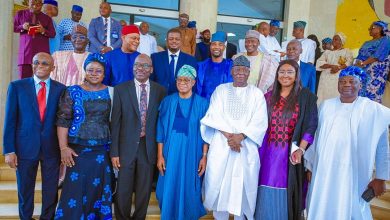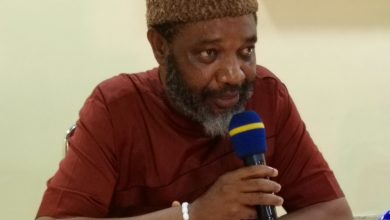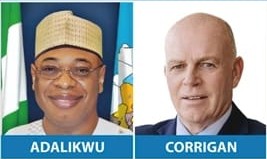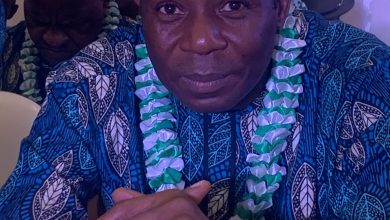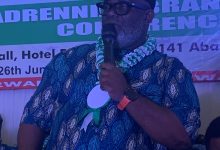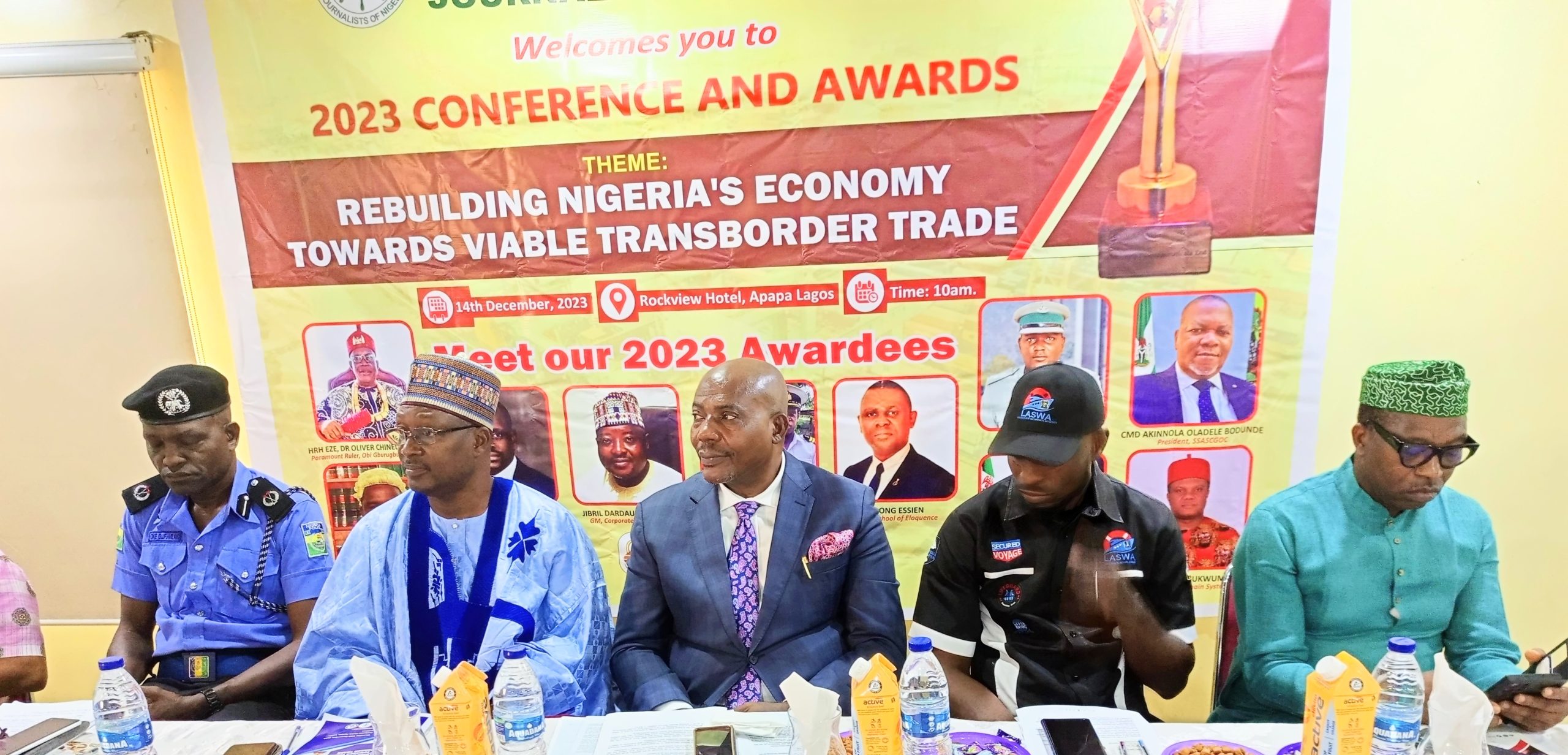
- Stakeholders identify non-oil exports as solution to Nigeria’s forex crisis
- Reviving moribund ports will decongest Lagos facilities, expand trade activities nationwide
By Edu Abade
Stakeholders in the Nigeria’s maritime industry have canvassed maximization of available infrastructure at the country’s ports and waterways to facilitate trade among its partners in Africa and globally and ensure that Nigeria sustains its economic growth and emerges as a world-class maritime destination.
They also insisted that the Federal Government through the newly created Ministry of Marine and Blue Economy put measures in place to ensure that the country transited from over-reliance on a mono-product economy, embrace and promote non-oil exports as the only viable solution to the foreign exchange crisis currently bedeviling the country.
This was the submissions of experts and maritime stakeholders, who converged on the Rockview Hotel, Apapa, Lagos for the fifth edition of the Association of Maritime Journalists of Nigeria (AMJON) 2023 Annual Conference and Awards.
In his paper titled: Providing Functional Ports Infrastructure for Efficient and Effective Trans-border Trade: The Journey So Far, Managing Director of the Nigerian Ports Authority (NPA), Mohammed Bello-Koko, who was represented by Port Manager, Lagos Port Complex, Apapa, Charles Okaga, stressed the importance of maximising available ports infrastructure to ensure that Nigeria’s economy blossoms.
The NPA helmsman explained that port infrastructure refers to the physical assets and systems that facilitate the efficient and safe movement of goods and passengers through a port.
He further clarified that port infrastructure encompasses components such as berths, channels, breakwaters, Inland Container Depots (ICD’s), stacking areas and sheds, internal roads, port illumination, navigational aids, mooring facilities, firefighting and security facilities and communication infrastructure, among others.
Speaking further, he said the NPA had implemented various initiatives to improve port infrastructure across the country, leading to increased efficiency, capacity and safety, adding that some key improvements include expansion and modernization of the ports.
Bello-Koko further explained that Greenfield Port Development in the creation of the Lekki Deep Sea Port, concessioning, Joint Venture (JV) infrastructure developments, dredging of channels, waste management, multimodal enablers and interconnectivity in rail, road and inland waterways should be maximized to increase trade and boost Nigeria’s maritime potential.
Citing the current status of port automation, he said the country could also leverage digitization, truck traffic management system electronic-call up, automation of port ship reception and billing payment with the Revenue Invoicing and Management System (RIMS).
Others are the deployment of electronic manifest and ship entry notice documentation processes, as well as deployment of electronic traffic management system, operation of Oracle Financials and Oracle HR and the ongoing procurement of software for harbour automation
Automation facilities for integration, he said, include radar, Automatic Identification System (AIS), VHF Communication, Meteorological and Tidal Sensor, Surveillance Cameras and VTMS.
He pointed out that the authority had initiated trade facilitation and ease of doing business, saying such initiatives include the establishment of export processing terminals in Lagos and Ogun states, which currently serve as cargo consolidation point, export documentation points and quality control facility.
“There are also facilities for customs authentication and sealing, coordination of shipment to ensure timely exportation through equipment of terminals with Electronic Data Interchange (EDI) with terminal operators and shipping companies, as well as installation of weighbridges at EPTs to ensure compliance with IMO instrument of Verified Gross mass (VGM) of export cargo and issuance of accompanying weigh certificate,” he stated.
Stressing that since the EPTs, the port of Apapa and Tincan has witnessed upsurge in export volumes, he noted that Nigeria’s port infrastructure has undergone significant improvements, adding that modernization projects, policy reforms and investments in human capital and sustainability have laid a solid foundation for future growth.
He, however, lamented that in spite of the available infrastructure that could enhance Nigeria’s trade potential, challenges of inter agency, inter ministerial municipal laws and regulatory boundaries and power supply failure had persisted.
There are also the challenge of speedy maintenance of port access roads due to the responsibility vested on the Federal Ministry of Works and Housing, without direct responsibilities for the port, conflicting legislations with sister agencies, inadequate funding and the need for further infrastructure development.
“While the challenges remain, NPA is committed to continuous improvement in order to position Nigerian ports at a competitive edge in the global market. Continued collaboration among the NPA, government, private sector and local communities will be crucial to unlock the full potential of Nigeria’s maritime sector and drive economic prosperity,” he stated.
On his part, Patron of AMJON and Chairman of the event, Iju Anthony Nwabunike, who was represented by Barrister Ikechukwu Ukadike, presented a paper on The Role Of The Customs Brokers In Sustaining A Viable Trans-border Trade For National Economic Growth.
He explained that until 2023, the Nigeria Customs Service used to rely on its extant Customs and Excise Management Act (CEMA), which had been replaced by the Nigeria Customs Service Act (NCSA) 2023, has always been empowered to issue licenses to agents under corporate identities.
He said the role of customs broker include that of an intermediary, facilitator, educator, revenue generator, strengthening economic relationship and promoting regional diplomacy
Maintaining that the rapid and safe movement of people and goods across borders encourage healthy trade, travel and transport, he stressed that the Customs has the onerous task of facilitating the flow while securing it.
He pointed out that such efforts should be secure, measurable, automated, be tailored to risk management and technology driven, adding that customs brokers should be intermediaries, facilitators, educators and revenue generators.
Nwabunike, who was pioneer Chairman of CRFFN and a renowned Maritime Consultant, said: “As revenue generators, over 70 percent of government revenue through its agencies from import and export activities have direct and indirect participation of freight forwarders.
“In its projections for 2024, Comptroller General of Nigeria Customs Service recently said the service aims to collect N6 trillion for the Federal Government. Over N4 trillion of the projected collection will likely be made through customs brokers. This is why I again urge the government to consider giving a percentage through statutory provisions to the customs broker.
“The cumulative impacts of trade across various spheres contribute to national economic growth and the importance of the customs brokers cannot be overemphasised when it comes to this. They touch directly on local and global trade thereby impacting the economy,” he stated.
In his welcome address, President of AMJON, Paul Ogbuokiri, who spoke on Non-oil Export as Panacea to Nigeria’s Foreign Exchange Crisis said: “The theme of this year’s event: Rebuilding Nigeria’s Economy Towards Viable Trans-border Trade, was deliberately chosen because of the mono-cultural economy which needs urgent solution to steer the country away from its present economic crisis.
He said until recently when economists listed the dangers of a mono-product dependent economy, it had sounded like a song meant mainly for entertainment; even with the occasional fall of the price of crude oil in the international market which usually shocks our economy whenever it happens.
“But we normally forget once the price of crude oil rises again and things normalize. As such, beyond sloganeering, we have never seemed to bother ourselves with the fact that our Balance of Trade year in year out has been unfavorable to us.
“Now the shock has become permanent because crude oil has become encumbered, a large portion of it now goes into payment of debts acquired and squandered by politicians, while the other portion is being stolen by powerful people; we are therefore left with little or no foreign exchange to finance our imports,” he said.
He commended President Bola Ahmed Tinubu, who he said, has not rested on his oars since assuming office to find a lasting solution to the nation’s economic crisis, adding that the President had used the opportunity of his foreign trips to canvas for foreign investments in Nigeria.
“However, while we await the president’s engagements to start yielding the desired results, AMJON is of the opinion that this an auspicious time for the country to sincerely look inwards and commence full domestic production for consumption as it was in the 1960s, 1970s and 1980s. The excess should be sold to other countries for our foreign exchange (Forex) needs.
“We strongly believe that non-oil exports hold the key to Nigeria’s economic survival, particularly with regard to intra-African trade. With platforms like ECOWAS Trade Liberalization Scheme (ETLS), African Continental Free Trade Agreement (AfCFTA) and the recent deal between the Customs Administrations of Nigeria and Benin Republic,” he added.
On his part, Paramount Ruler of Ihim-Isiama Community in Isiala-Mbano Local Government Area of Imo State, Eze Oliver Chinedu Ohanweh, who bagged an award at the event, canvassed revival of moribund ports, especially in the South East and South=South to decongest the Lagos ports and expand port operations across the country.
Specifically, he urged the Federal Government to dredge the Orashi River in Imo State to facilitate trade in the South East and reduce pressure on the roads by removing multiple checkpoints from Lagos to the Eastern and Southern parts of the country.
He maintained that besides increasing the cost of transporting cargoes by road to the East and other parts of the country, the multiple checkpoints have been hindering the ease of doing business in Nigeria.
The high point of the well-attended event by representatives of the Nigerian Maritime Administration and Safety Agency (NIMASA), National Inland Waterways Authority (NIWA), Lagos State Waterways Authority (LASWA) and Port Police Command, among others, during which AMJON conferred different categories of awards on deserving stakeholders of the maritime industry.






